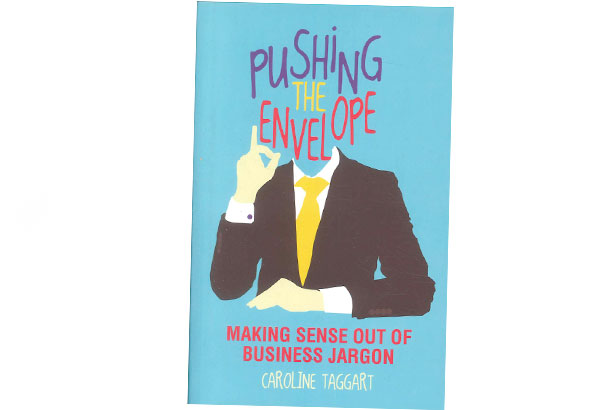New words and phrases emerge when world-shaking political events happen, a pandemic occurs, a financial tsunami hits, new behavioral patterns arise, deaths of revered icons occur or developments in technology and gadgetry creep into our daily lives.
Terms, slang and expressions — Twitter, global warming, climate change, cloud computing, jai ho, Mayan calendar, King of Pop, snowmageddon, shellacking, simplexity, teachable moment, man up, ambush marketing, occupy, fracking, non-veg, kummerspeck, Arab spring, royal wedding, Bunga Bunga, apocalypse, omnishambles, drones, frankenstorm, YOLO (you only live once), adorkable, Gangnam Style, rogue nukes, toxic politics, WAW (war against women), selfie, 3.0, hastag, twerking, filibuster, ethical fashion, meme, marathon bombing, federal shutdown, all-time high, tread lightly, beat boxing, eticket, heroine worship, chugging, bestie, toilet-papering, blu-tack, crowdfunding, amazeballs, firemost, photobomb, ghost plane, VV Putin, emoji, futebol — have become part of our vocabulary. Your workplace, and even your home, is now a minefield of professional and personal gobbledygook that people use on a daily basis.
These words and phrases, as Caroline Taggart, author of the book Pushing The Envelope, Making Sense Out Of Business Jargon, says, can be “indecipherable abbreviations and business terminology, to buzz words, motivational phrases and more. They can all start to sound like everyone around you is speaking another language. But it’s time to shoot the puppy (do the unthinkable), push the envelope (expand the boundaries), knife and fork the problem (handle it bit by bit), and come to grips with the language of business!”
The tome takes a wry and witty look at business jargon, uncovering the origins and meanings of many useful — and some, not so useful —phrases that can be heard in the workplace and in everyday life. Amusing and informative, Taggart’s work guarantees that you’ll be fluent in business in no time. Jargon-using people are seen as too lazy to use language everyone can understand, or they just want to pull the wool over the eyes of their colleagues or clients. Get familiar or re-oriented with this abbreviated list from the book. You might just have the need to throw some of them into today’s meeting:
Blamestorming: Obviously a corruption of “brainstorming,” which is an after-event faceoff intended to determine why something went awry in the implementation. It goes without saying that all parties involved are trying to avoid accountability and point a finger at someone else as the culprit, who could most likely be the trainee or the lowest-ranking member of the team.
Blue-sky thinking: A buzz phrase of the ’60s and ’70s, this means “pie in the sky” or something that should be avoided. It connotes an unrealistic, impractical, or exorbitant delusion. Think Lucy in the Sky with Diamonds — a song by the Beatles. In today’s usage, the expression has undergone a makeover, and has come to mean, “The sky’s the limit, go for it.” It is now something to aspire for: “Reach for the stars!”
Brain dump.
When you leave your job, you’re also leaving your work station, the laptop issued by the company, thousands of emails, hundreds of Excel and Word documents and Powerpoint presentations accumulated while there. You want to make this information available to your successor but don’t want the inconvenience of cataloging the junk. So what do you do? Save it all onto the computer system and “dump” it on the poor fellow who inherits your computer. Bluntly, you’re beyond helpfulness and caring when you do that.
Face time. You can’t email a handshake or pat on the shoulder. You need to have face time, which requires getting together in the same room, looking people in the eye and feeling their warmth or lack of it, as opposed to communicating by phone or email. It is also known as a meeting.
Gardening leave. A euphemism, which has been in use since the 1980s, to describe the act of sending someone home on full pay — normally to “work out” a notice period — without actually doing any work. In other words, you want to get rid of him and you don’t want his pernicious influence around the office, but if you sack him, he’ll sue. The implication is that he will have plenty of time to potter in his garden, which will keep him out of mischief and, specifically and often contractually, prevent him from selling his expertise to your competitors. It’s like preventive suspension or house arrest, with fewer guards and more gardening.
Knee-jerk reaction. If you’re sitting down with your feet off the floor and someone taps you just below the knee with a small hammer, the lower part of your leg jerks forward. Physiologically, this is a knee-jerk reaction — a reflex action that you don’t make consciously and can’t easily prevent. In business and politics, it’s generally a bad thing — a reaction made automatically, without thought, in a “we always do it like this” sort of way.
Lipstick indicator. An expression coined by Leonard Lauder, son of Estee and chairman of the cosmetics company that bears her name, at the time of the recession in the beginning of this century. His theory was that, in a period of economic uncertainty, when a woman may feel guilty about splashing out on new shoes or a handbag, she compensates by indulging in smaller treats such as lipstick. Increased sales of lipstick, therefore, could be a sign of poor economic health. Economists don’t really buy the idea, but then, most of them are men.
Managing expectations.
A synonym for “brazen deception,” like telling your shareholders to expect the worst, and then dazzling them with better-than-expected profits. The great proponent of this is the Disneyland theme park, which hangs a sign saying, “Waiting time for ride from here 45 minutes,” at the point in the queue when the waiting time is, in fact, only 30 minutes. Customers are then delighted to reach the front of the queue 15 minutes earlier than expected.
Mass sampling.
If you’ve ever accepted a free hotdog slice, an ounce of a new coffee mix, or been accosted by a perfume salesman in a department store, then you’ve been a victim of mass sampling — a marketing ploy intended to make customers try — then buy — a new product. It is otherwise known as a “freebie.”
Mushroom management. A belligerent management style not normally advocated as a serious course of action, which Jonathan Green — compiler of the Dictionary of Jargon in 1987 — defines as a theory of management that believes the best way to treat employees is to “put them in the dark, feed them muck and watch them grow.” Time off and pension packages do not feature heavily.
Out of left field.
An American baseball idiom, whose origin can be traced to a batsman’s ball getting unexpectedly bowled out of left field in a game. The idea came out of nowhere, and has since gone international. It doesn’t follow rationally from anything that has been discussed before — and may well be complete garbage.
Pushing the envelope.
In aeronautical parlance, the “flight envelope” describes a plane’s best possible performance — flying at the fastest speed, the highest altitude, and using full engine capacity. Engineers and test pilots who “pushed the envelope” were trying to build a plane that could fly faster, higher and farther than ever before. In today’s usage, it refers to any moderately ambitious office project, giving birth to the joke: “No matter how much you push the envelope, it will still be stationary.”
Revenue stream. Governments use this phrase because it sounds better than “income generated by taxes.” In business it means little more than “sales.” Increasingly, however, it has come to mean “a new and exciting source of income” — the Kindle is a new revenue stream for Amazon, as is podcasting for a radio station or newspaper. But as long as the cash keeps flowing, it doesn’t matter much what you call it.
Swarm intelligence. This metaphor comes from the notion of beehives or ant colonies working in tandem to attain a common end. It’s teamwork, plain and simple, where a lot of people work together, without any one individual knowing what the big picture is. Everyone sees the trees but not the forest.
Time poor, cash rich. This was the great cry of the overworked, over-stressed 1980s, when it seemed that lots of people had plenty of money but no time to spend or enjoy it. But times have changed. As one encyclopedia of management wryly points out, being time poor but cash rich tends to be a lifestyle choice: those who are time poor and cash poor because they work hard in badly paid jobs rarely have any say in the matter.
Water-cooler moment.
This phrase first came into use in the 1990s to describe a controversial moment in last night’s episode of a soap opera that had everyone talking around the water cooler, the fax machine or the pantry the following morning.
Words. New ones will be born and old ones will die and perhaps be resurrected at a later time. You live and breathe them. Buddha says, “Whatever words we utter should be chosen with care for people will hear them and be influenced by them for good or ill.”
* * *
Email bongosorio@yahoo.com or bong_osorio@ abs-cbn.com for comments, questions or suggestions. Thank you for communicating.

















